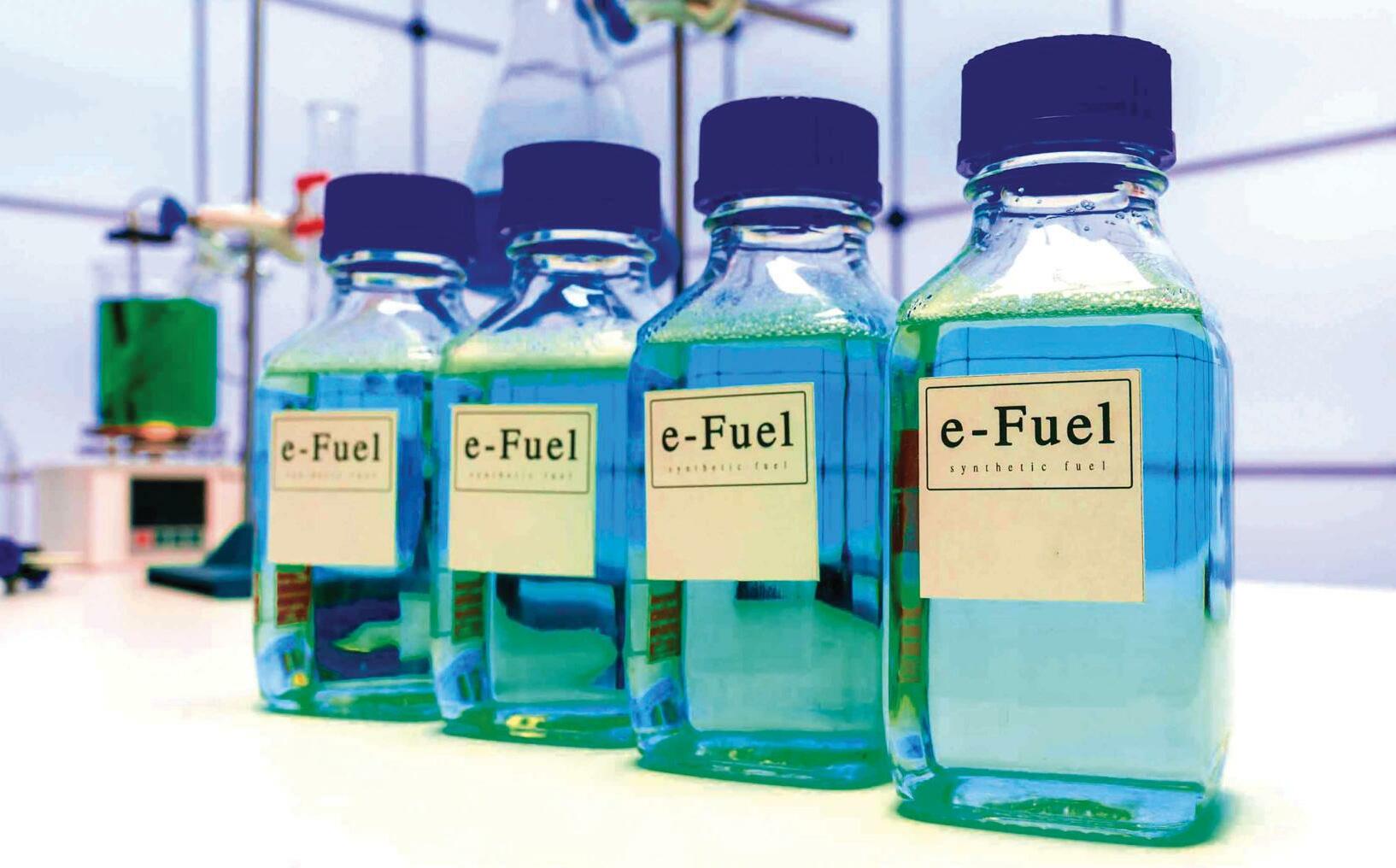
The likes of Porsche and Ferrari are banking on synthetic fuel to ensure their cars are exempt from the EU ban on the sale of new combustion engine vehicles by 2035. Synthetic fuel - or electrofuel (e-fuel) - is a form of petrol made using hydrogen from water and carbon from air. The problem is the electricity that's required to extract these elements. Nevertheless, companies are already producing e-fuel on a small scale, including some in the UK. So will we see e-fuel in petrol stations soon and can we, and the planet, afford to use it? We spoke to Prof Patricia Thornley, Director of the Energy and Bioproducts Research Institute (EBRI) at Aston University, to find out.
WHAT ARE E-FUELS?
E-fuels are synthetic fuels. We create them from the building blocks of carbon dioxide (CO₂) and hydrogen. You can use electrolysis to produce hydrogen and you can pull the CO₂ out of the atmosphere by direct air capture. Combining these produces a hydrocarbon fuel. If you get different mixes of these molecules, then that provides you with different fuels for different purposes: lighter molecules are suitable for, say, an aircraft's ignition fuel, while you'll need heavier molecules for car or marine engines.
HOW ARE THEY DIFFERENT FROM BIOFUEL?
With biofuels (for example, ethanol and biodiesel) you're growing material that contains carbon, hydrogen and oxygen, and trying to convert it into a liquid or gas that you can use. In many ways, that pathway is the same with e-fuels but it's different in that biofuel needs land.
The main advantage of e-fuel is that you're not using plants but the disadvantage is that you're using more energy and this energy still has to come from somewhere.
HOW DOES E-FUEL HELP TO CUT DOWN CARBON EMISSIONS?
This story is from the June 2023 edition of BBC Science Focus.
Start your 7-day Magzter GOLD free trial to access thousands of curated premium stories, and 8,500+ magazines and newspapers.
Already a subscriber ? Sign In
This story is from the June 2023 edition of BBC Science Focus.
Start your 7-day Magzter GOLD free trial to access thousands of curated premium stories, and 8,500+ magazines and newspapers.
Already a subscriber? Sign In

5 SIMPLE WAYS TO RECLAIM YOUR ATTENTION
Primed for constant interruptions, your brain is now distracting itself, says science. It's time to break the cycle and retrain your focus

GOING ROGUE
Some planets are stuck following the same orbital paths their entire lives. Others break free to wander alone through the vast, empty darkness of interstellar space and there's a lot more of them than you might think

BED BUGS VS THE WORLD
When bloodthirsty bed bugs made headlines for infesting Paris Fashion Week in 2023, it shone a spotlight on a problem that's been making experts itch for decades: the arms race going on between bed bugs and humans. Now, with the 2024 Summer Olympics fast approaching, the stakes are higher than ever

THE EYES THAT WATCH THE SKY
When it launches in 2026, the Copernicus programme's Anthropogenic Carbon Dioxide Monitoring satellite will give us a new window on to Earth's atmosphere... And how we're altering it

TIME-RESTRICTED EATING LINKED TO HIGHER RISK OF CARDIOVASCULAR DEATH
Skipping breakfast might not be so good for your health, after all

INSIDE THE PROJECT TO SCAN THOUSANDS OF RARE SPECIMENS
A major collaborative project has created 3D reconstructions of previously locked away museum specimens

VIDEO IS FIRST EVIDENCE OF AN ORCA KILLING A GREAT WHITE
Tourists sailing off the South African coast film a never-before-seen event: a lone orca attacking a 2.5m shark

AI REVEALS PROSTATE CANCER IS NOT JUST ONE DISEASE
DNA analysis carried out by artificial intelligence has helped scientists make a discovery that could revolutionise future treatment

MYSTERIOUS WAVES DETECTED IN JUPITER'S CORE
Scientists hope unusual fluctuations in the gas giant's magnetic field might reveal what's inside

MINI ORGANS GROWN FROM UNBORN BABIES MARK A BREAKTHROUGH IN PRENATAL MEDICINE
A new technique could allow congenital conditions to be diagnosed and treated before birth